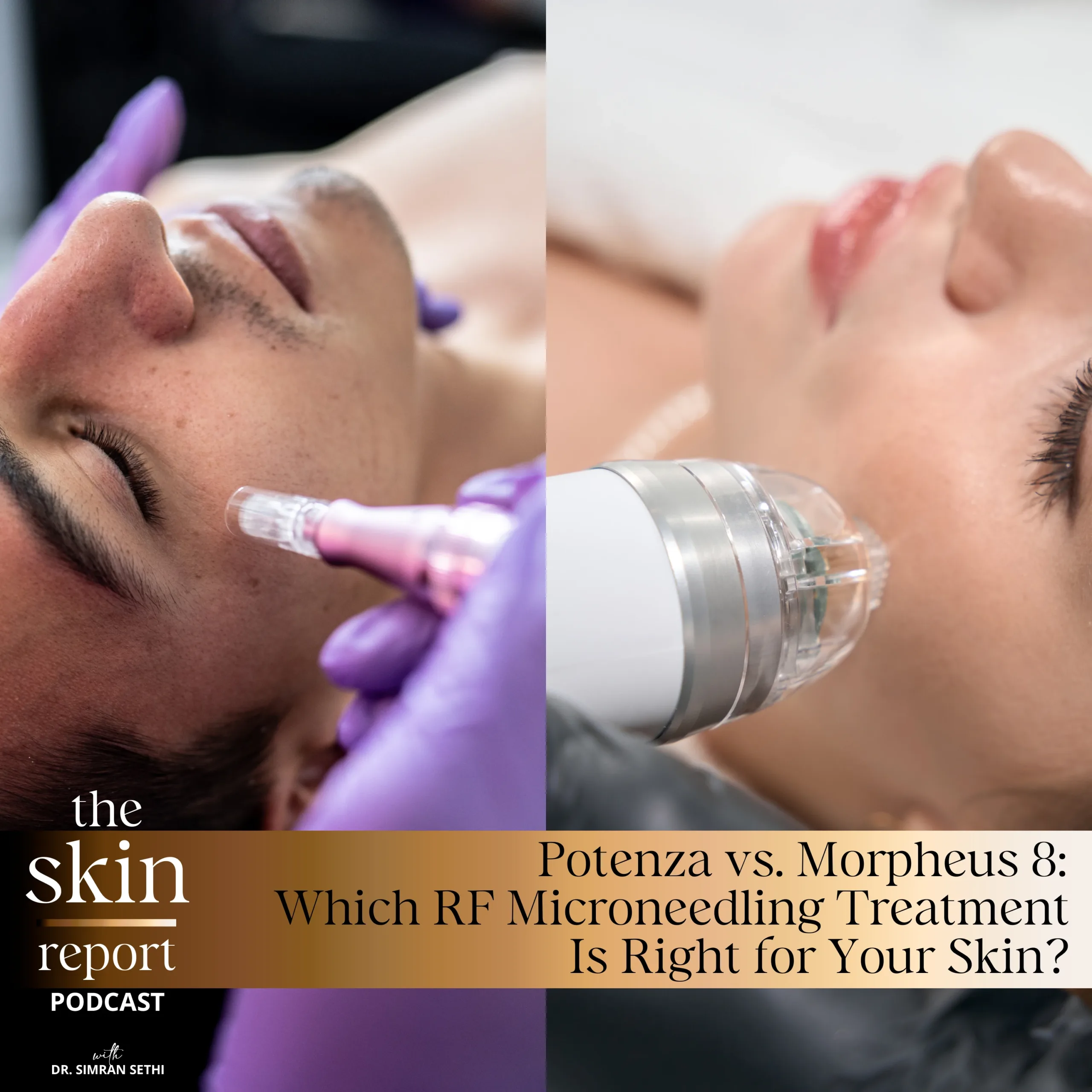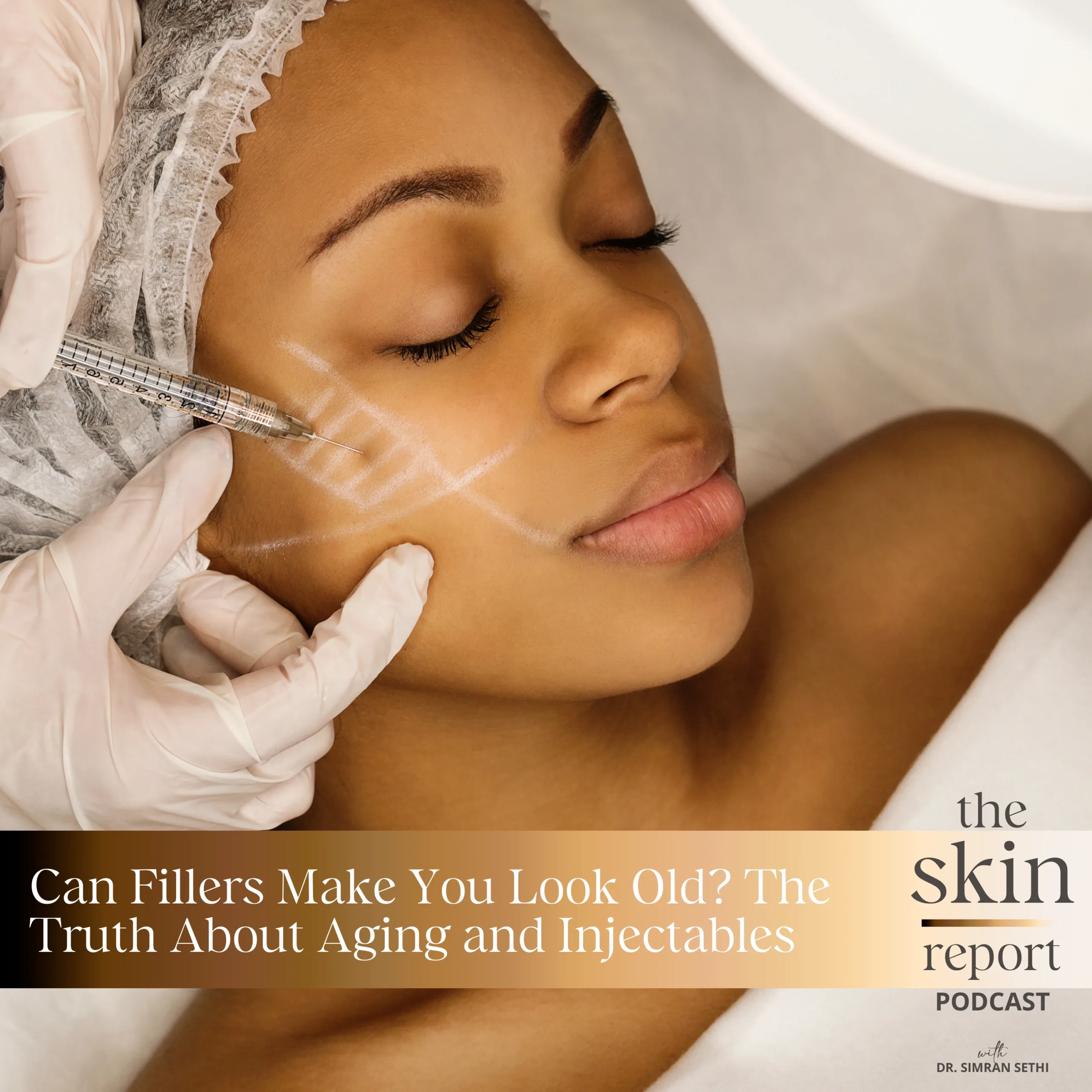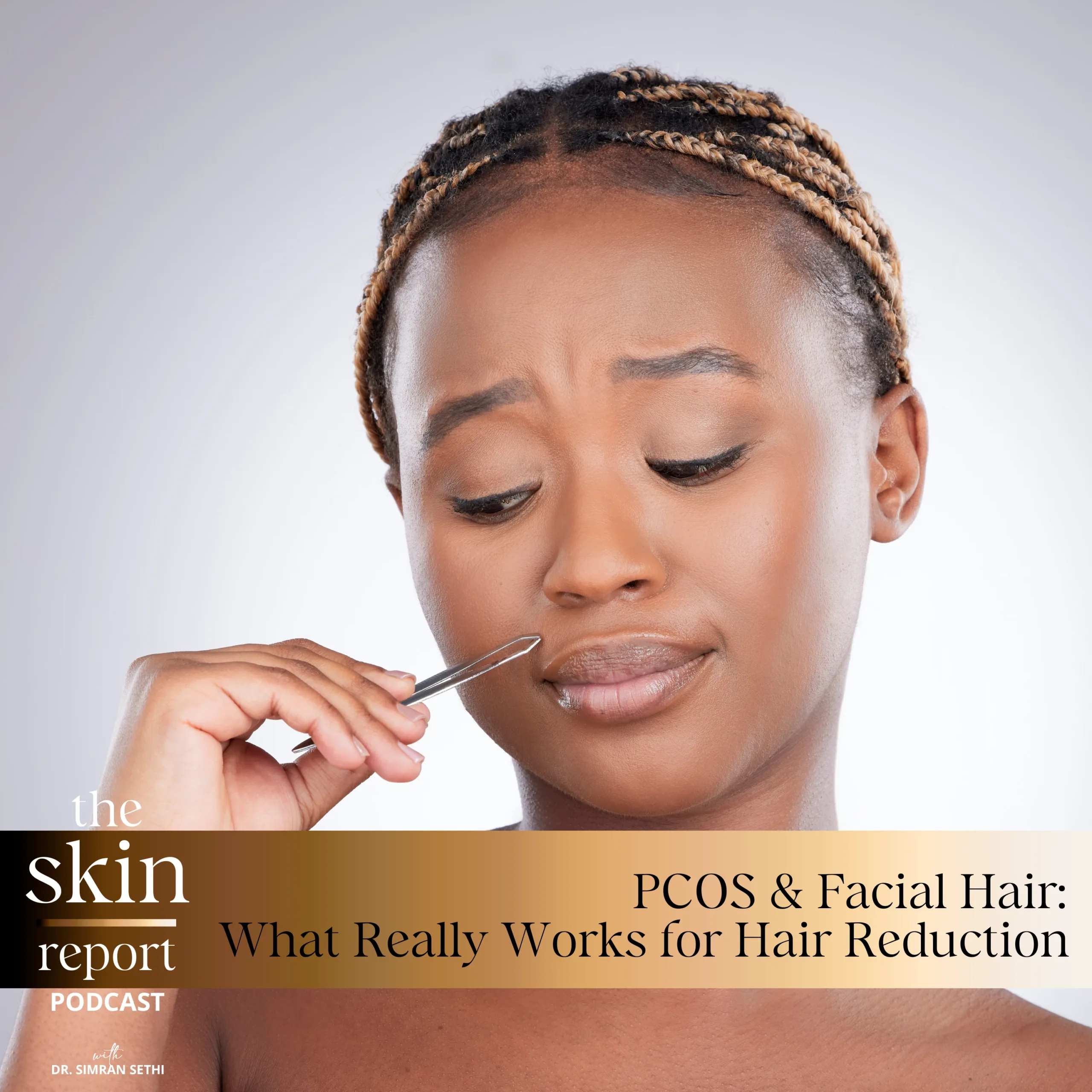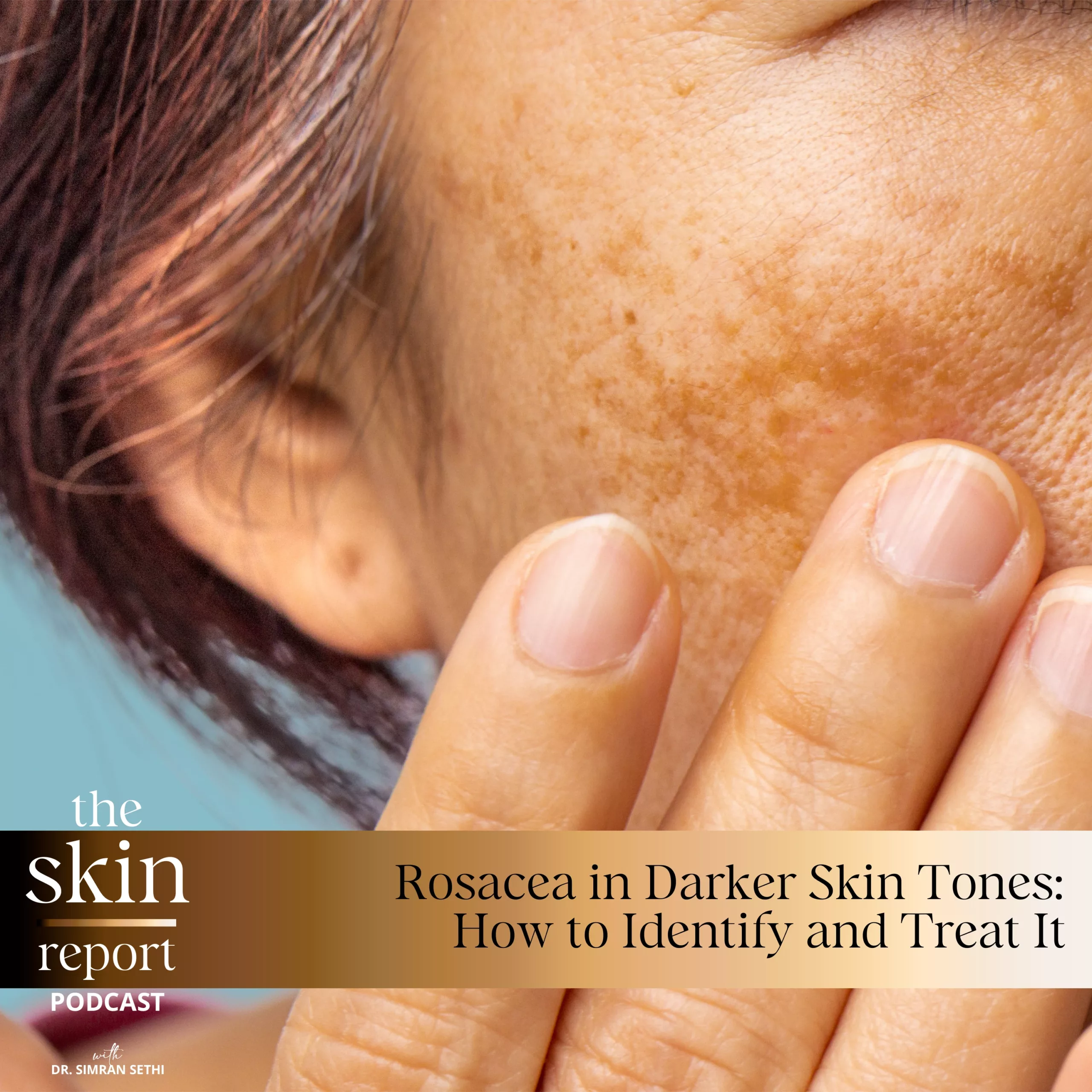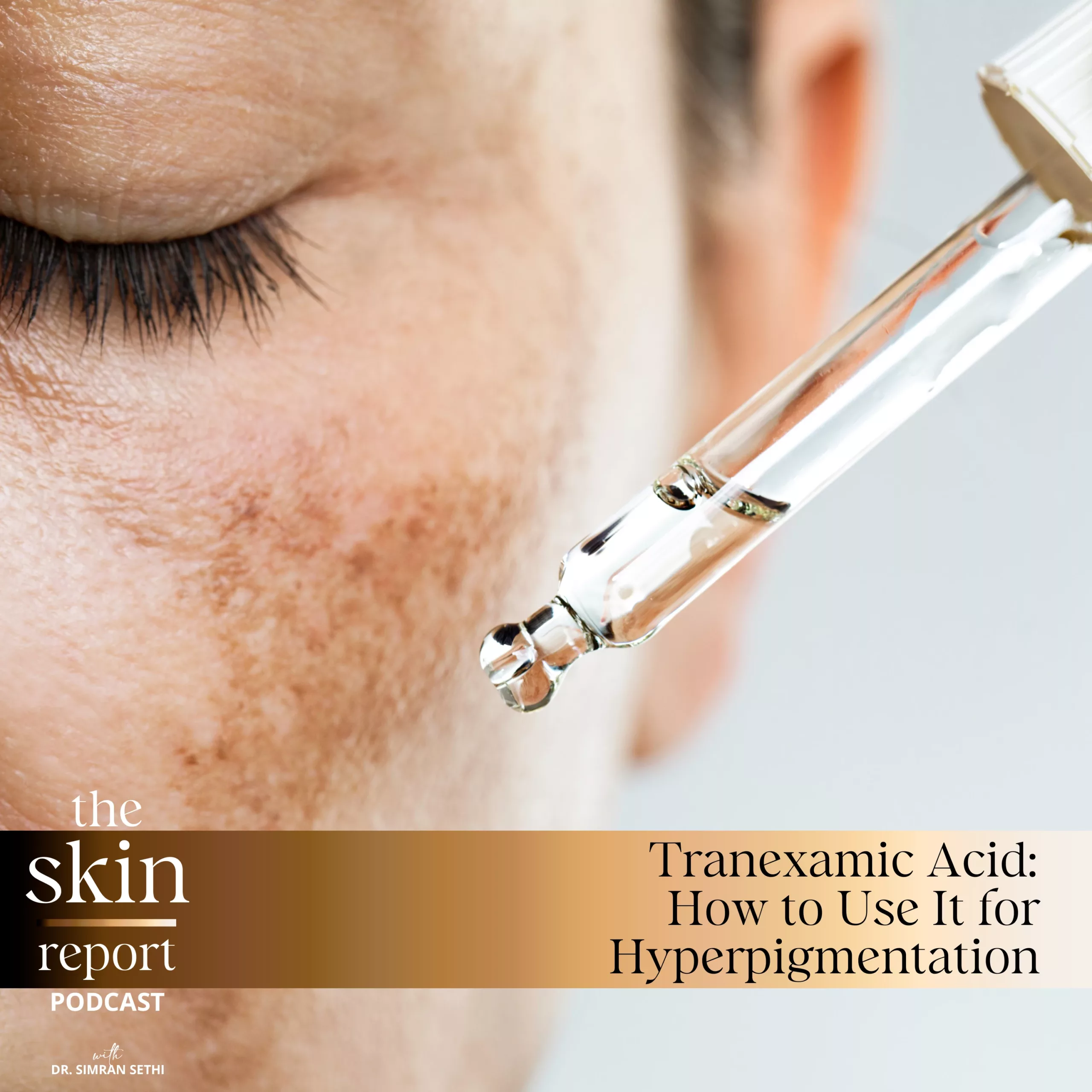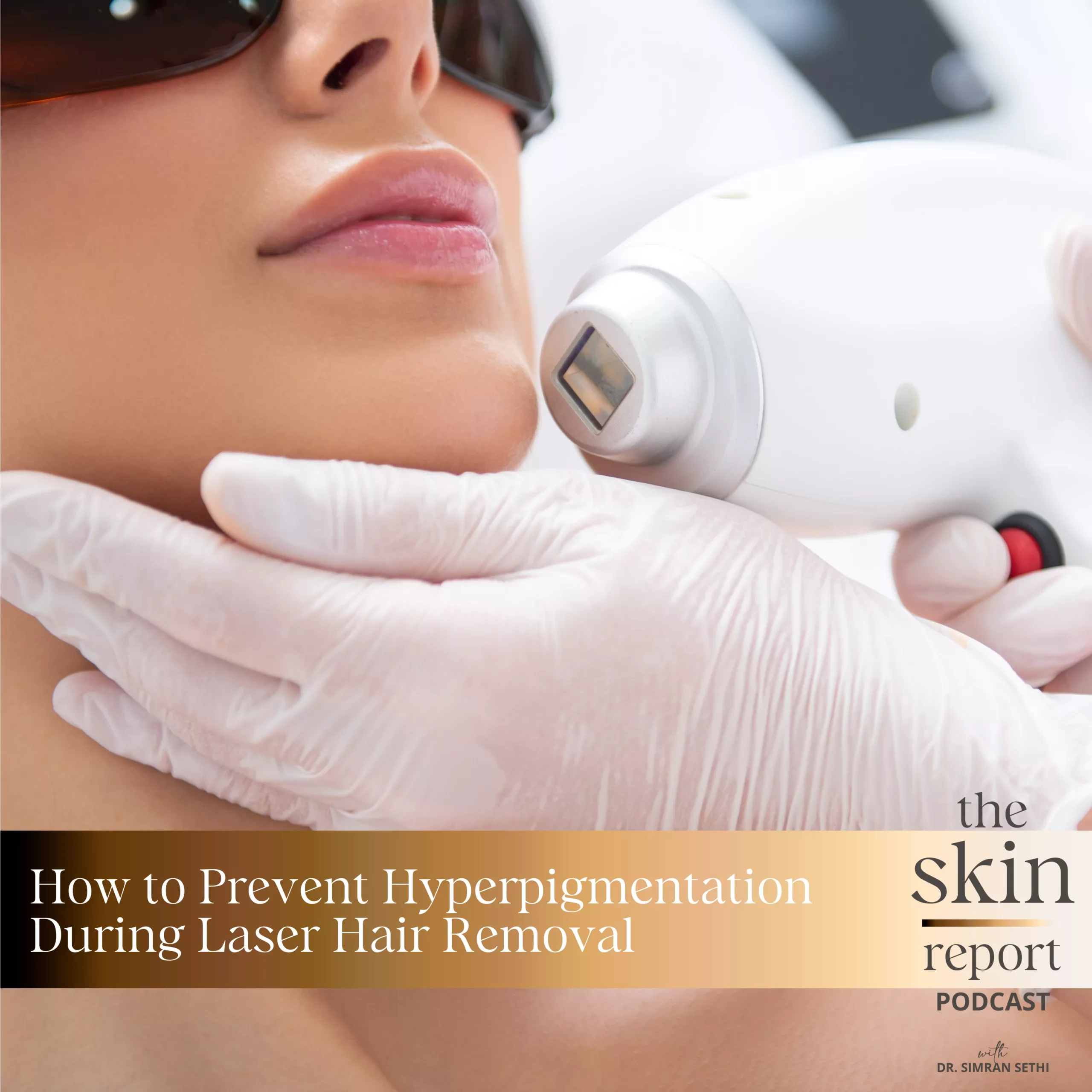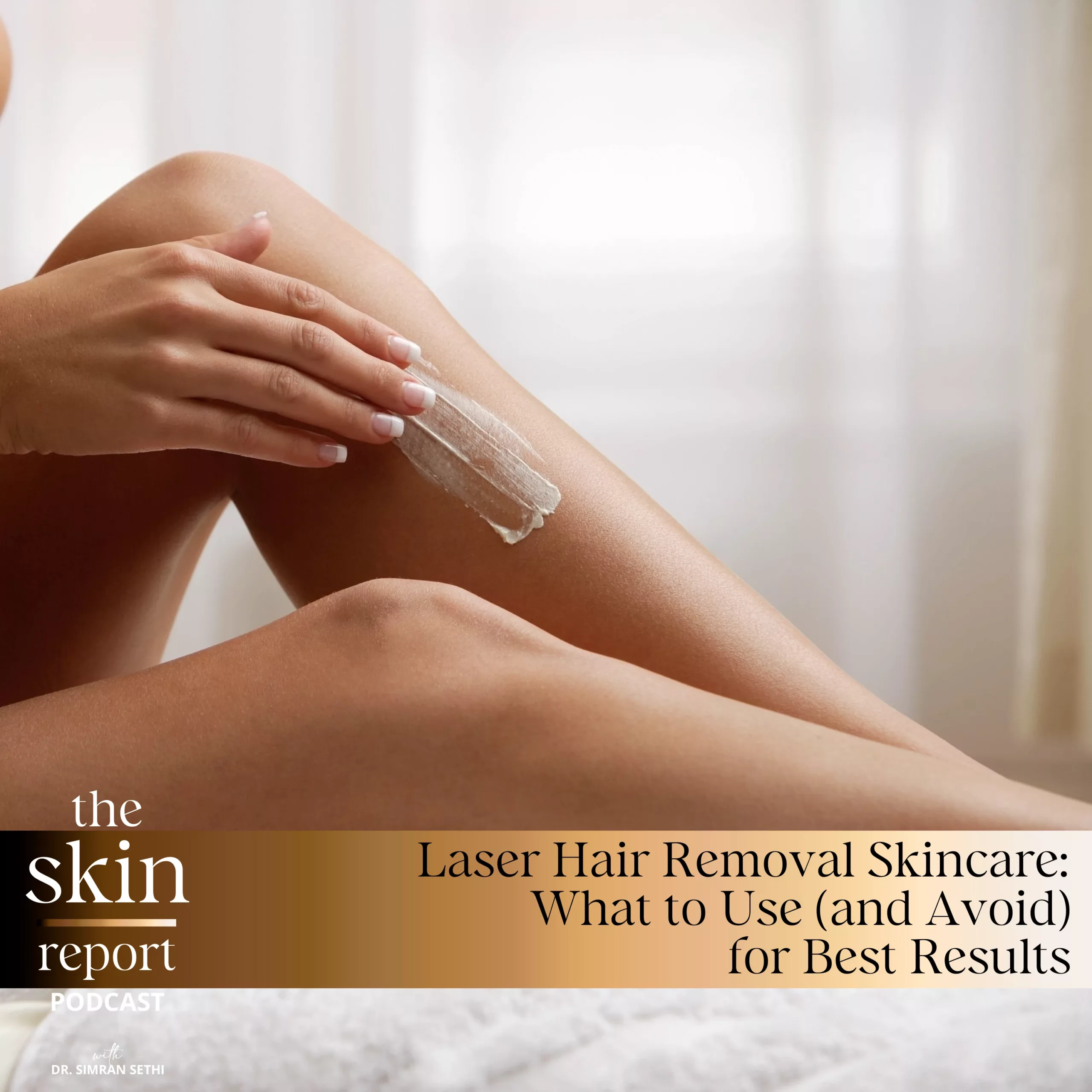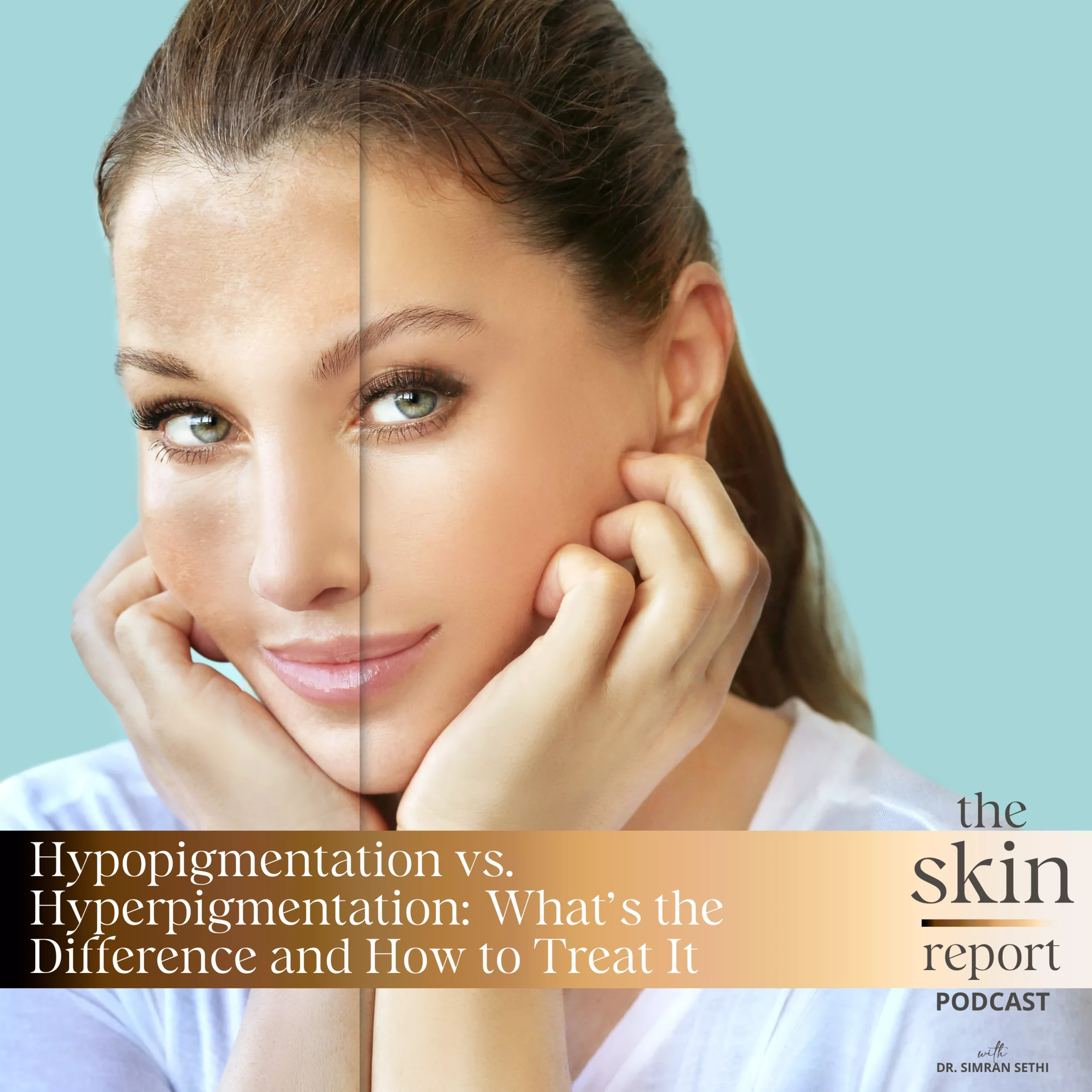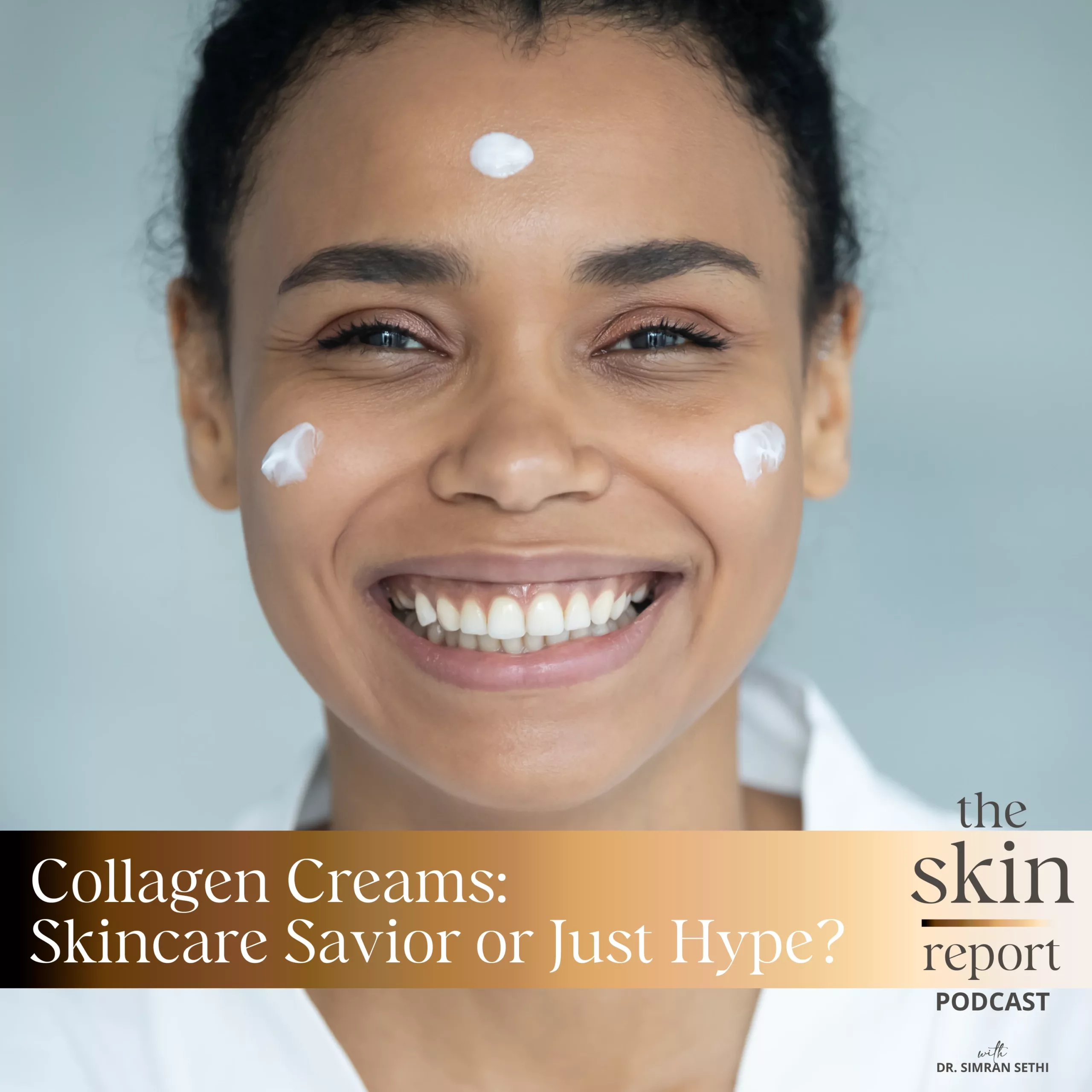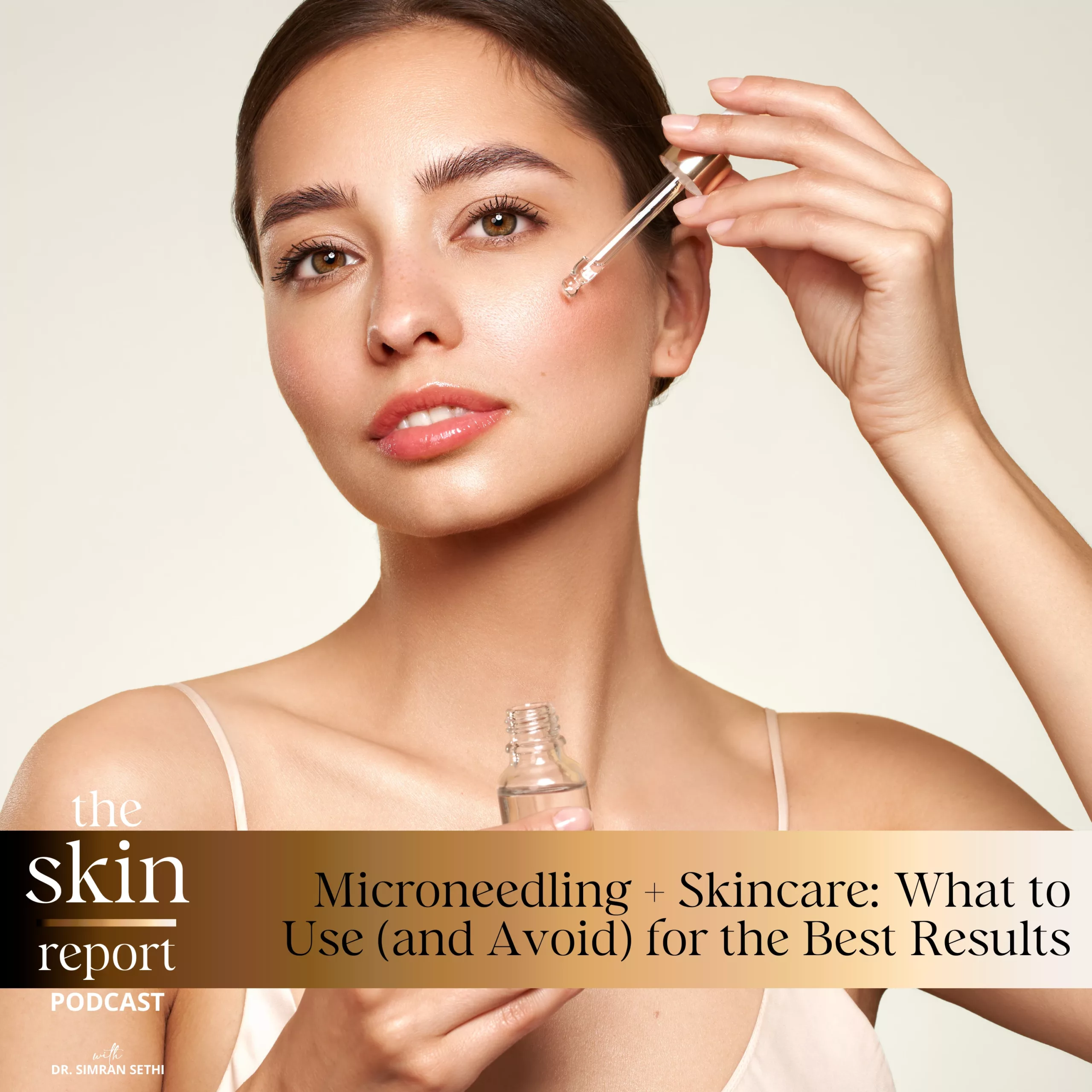It is true that certain foods and fats can cause problems for the skin, like breakouts or premature aging. However, some foods and ingredients can help to improve our skin! Factors like gaining proper nutrition and staying hydrated can help the skin, but that leads to more questions: what exactly should we eat for healthy skin? Also, what are the best vitamins for skin health, and do collagen supplements really work to improve the skin?
The Skin Report is a podcast created to educate listeners on methods to improve skin health for people of all ethnicities and ages. This week, host Dr. Sethi continues her two-part series on the relationship between nutrition and our skin. While she discussed foods to avoid on last week’s show, this episode is all about foods and nutritional components that enhance skin health and appearance. She covers how vitamin C foods and omega-3 fatty acids influence skin health and shares her thoughts on hydrolyzed collagen powders. So tune in to this episode so you can enjoy more foods that are good for your skin!
Beauty Instagram: https://www.instagram.com/renewmd_beauty/
RenewMD Beauty Medical Spas, California: https://renewmdwellness.com/
https://docs.google.com/document/d/18jn3RqN6m7-ErHNmPdkVVddGPModNs45msIGwhFl0_o/edit?usp=sharing
https://pubmed.ncbi.nlm.nih.gov/33742704/
https://tappwater.co/en/healthier-bottled-filtered-or-tap-water/
https://www.nhlbi.nih.gov/news/2022/staying-hydrated-throughout-life-may-reduce-risk-heart-failure
https://academic.oup.com/eurheartj/article/43/35/3335/6553797
This transcript was exported on November 8, 2022 -view latest version here.
Skincare can sometimes feel overwhelming. Whether it’s finding the right products, ingredients, or treatment, there is a lot out there, but not always for women of color. That’s why I set out to educate myself and others so that we can all feel beautiful in our skin.
Hello and welcome to The Skin Report. I’m Dr. Simran Sethi, an internal medicine doctor, mom of three and CEO and founder of RenewMD Medical Spas and SKIN by Dr. Sethi. For the months of September and October we took a deep dive into specific topics, skin of color and melasma respectively. While we won’t be covering a four part serious in November, we will be tackling something else, skincare trends and hot topics. Last week we spoke on how certain foods and fat can cause breakouts or faster aging. This week we’ll be continuing that discussion, but on the flip side. What foods and ingredients help improve our skin?
If you haven’t done so already, I suggest going back and listening to episode 27 where we tackle myths and misconceptions around food and our skin. We covered the science behind what greasy foods, chocolate and sugar due to our skin. For this episode, I want to focus on foods and nutritional components that enhance skin health and appearance. Luckily, a lot of these interventions will also help promote hair and nail growth.
Now, before we dive into nutrients, I feel we must talk about water. It feels like whenever a celebrity answers a question on how they get flawless skin, the answer is water. I know many of us are tempted to roll our eyes. We know that these celebrities are also buying high end creams, serums and cosmetic procedures. It can’t just be water. However, there is a point to this. Water makes up most of our body and helps to flush out toxins and transport nutrients to all our cells, including the skin. Our entire skin layer holds about 60% of our body’s water content, which means that when we do not drink enough water, skin will appear dehydrated and less plump.
Several surveys have estimated that up to 75% of Americans are chronically dehydrated. However, these studies are conducted by market research groups and brands as opposed to medical professionals. Even still, surveys of elderly patients have reported that dehydration occurs in 17 to 28% of older adults according to a review published in the National Library of Medicine. A 2022 study published in the European Heart Journal found that staying hydrated throughout your lifetime can greatly reduce your risk of heart failure among other things.
Not only is it necessary for our survival, water aids our organs, including our skin, which is our body’s largest organ. Additionally, when we fill up with water, we’re also less likely to drink other beverages that could potentially contain sugars. As we discussed in our last episode, sugar has been linked to weakening and aging the skin by impeding collagen and elastin cross-linking. I know I may sound like I’m harping on what is common sense, but it’s better for you. Your skin, organs and overall health to drink more water than it is to skimp on it. When we return, we’ll discuss which vitamin is essential for skin health and why.
While all vitamins are necessary for our health, one in particular helps our skin in many different ways. Vitamin C. Vitamin C is a strong antioxidant that you’ve probably seen in many skincare products including my own C Restore Serum. The reason why vitamin C is often used is that it binds to free radicals that cause stress on all our cells including skin cells. In addition, vitamin C has been heavily studied and shown to be essential in production of new collagen and skin repair, such as a 2017 study published in the National Library of Medicine, which showed that daily use of vitamin C formulation improved skin texture and appearance in just three months.
While many people think that applying vitamin C rich skin care serums is enough to treat hyperpigmentation, there’s a lot of scientific evidence that shows that consuming vitamin C rich foods is equally important. Not only will eating vitamin C rich foods help with hyperpigmentation, it can help fight skin aging in general.
If you recall from previous episodes, our skin is made of several layers, with the deeper layer being the dermis and the outer layer being the epidermis. The dermis is supplied by blood vessels that transport vitamin C to the skin to make collagen and repair oxidative damage. Before we go any further, I want to explain a little bit of the signs of oxidative damage so that you can be as educated as possible. Just bear with me. It’ll be quick.
To factors such as sun exposure, diet, pollution, and smoking, our skin cells produce free radicals, which our cells then need to clear. However, when we have more free radicals than our cells can manage to clear, we’re undergoing oxidative stress, which is not only damaging to our cells but also ages them. Antioxidants help by binding to free radicals so that they’re no longer free radicals. In essence, antioxidants neutralize free radicals and their damaging effects.
Okay, so what does all of this mean and why is it important? The deeper layer, the dermis, has a blood supply and can utilize antioxidants like vitamin C to bind to these free radicals. Our epidermis doesn’t have access to blood vessels directly and therefore can only get nutrients via diffusion from the dermis beneath it. This includes relying on the dermis for vitamin C. When we consume a high concentration of vitamin C in our diet, it provides enough vitamin C to the dermis for our collagen and elastin protein production and allows for extra vitamin C to migrate to the epidermis where most hyperpigmentation sits and is the layer that is most affected by UV damage.
When we think of vitamin C rich foods, we tend to lean towards citrus like lemons. While lemons and oranges are great, there are some foods that deliver higher doses of vitamin C and have additional health benefits. So what are they? First, acerola cherries. Acerola cherries have one of the highest contents of vitamin C with 825 milligrams in just half a cup. Consuming just a handful will provide more than enough vitamin C to support the cellular function of both the dermis and epidermis, which in turn will help with clearing of hyperpigmentation.
Guava. One guava can contain 125 milligrams of vitamin C, which is over 130% of our required daily value. It’s also high in fiber content, which makes it an excellent choice for packing in a lot of vitamin C with a single serving. Strawberries. These provide over 100% of our needed daily value and are also high in folate, another micronutrient that is important in fighting hyperpigmentation and aids in overall skin and hair health.
Papaya. Papaya provides 88 milligrams or 98% of recommended daily value. It’s also powerful in fighting inflammation, which is also a leading cause of hyperpigmentation, especially in more melanated skin tones. Kale. A cup of kale provides over 100% of daily value of vitamin C, and of course delivers additional benefits like inflammation reduction.
When we return, we’ll discuss beneficial fatty acids and collagen. Fats are divided into healthy versus unhealthy fats. In our previous episode, we talked about excess omega-6 fat consumption usually in the form of vegetable oils that are commonly used in fried foods linked to promoting acne. Omega-3 fatty acids, however, are a group of fats that have been found in multiple molecular studies to be anti-inflammatory and are being studied in more clinical trials as a means of reducing inflammation caused in skin diseases like psoriasis and eczema.
If you are vegetarian, you can get plenty of omega-3s as chia seeds and flax seeds have some of the highest content of omega-3 fatty acids. You will find omega-3 fatty acids in chia and flax seeds, which are both a great source of fiber as well as walnuts. I personally consume a lot of chia seeds in an almond milk based chia seed pudding and a add it my water too. This is a great way to add a big dose in a small way to your daily routine. Fatty fish like salmon are also a great source of omega-3s.
Next I want to discuss consuming collagen. Collagen supplementation has gained popularity over the years and studies have shown that it is an effective way of increasing skin elasticity and hydration. In fact, a large meta-analysis published in the International Journal of Dermatology in 2021 looked at 19 studies with a total of 1,125 participants aged between 20 and 70 years, and 95% of them were women. In the meta-analysis, a grouped analysis of studies showed favorable results of hydrolyzed collagen supplementation compared with placebo in terms of skin hydration, elasticity and wrinkles. The findings of improved hydration and elasticity were also confirmed in the subgroup meta-analysis. Based on results ingestion of hydrolyzed collagen for 90 days is effective in reducing skin aging as it reduces wrinkles and improves skin elasticity and hydration. Most oral collagen supplements are made of collagen Type I, which is the type of collagen found in joints, muscles, skin and hair. This collagen is hydrolyzed or broken down into four proteins or amino acids that are delivered in the form of pills or powders.
I take at least 20 grams of collagen powder in a large mug of green tea daily. By doing this, I have noticed improvements in hair and nail growth too, and my joints are much healthier. I understand that there are an overwhelming amount of vitamins and supplements on the market, and sometimes it can be challenging to know which ones are worth the money.
So what’s better, collagen powder or pills? In order to get any kind of benefit from collagen consumption you should be taking at least 10 to 20 grams per day. With this in mind, I definitely recommend collagen powders. Pills contain small quantities of collagen and to reach that 10 to 20 grams per day, you would need to take a lot of pills, which is not only challenging, but can cause stomach issues in the long run.
So instead, I lean towards powder. I make myself a small thermos of green tea or lemon or both with hot water and collagen powder and drink it on my way to work in the morning. Another common question people have is whether collagen can be derived from plants and if marine versus bovine collagen is better. Unfortunately, there are no vegetarian sources of collagen protein. Collagen supplementation comes in two forms, either marine collagen sourced from fish scales and skin or bovine collagen made from cowhide.
I prefer bovine collagen as it’s tasteless and easy to consume, while marine collagen definitely has a fishy taste. Some companies try to conceal it by mixing it with other flavors. The taste is still strong enough to come through. However, if you follow a pescatarian diet, it is a great option.
When we return, we’ll be tackling the most popular TikTok on which foods to eat for healthy skin. HazelGrace611’s list is not exactly what I would put together for a list of top skin nourishing foods. First, tomatoes are a great source of many nutrients, but they do not contain nearly as much vitamin C as citrus fruits like oranges, which are also on the list. Blueberries are high in antioxidants and low in sugar, which makes them an excellent source of vitamins.
I’m also not a big fan of yogurt on this list because it is dairy, which can actually exacerbate acne in some people. I love Greek yogurt and use it as a low fat, high protein substitute in a lot of recipes, but we don’t have any scientific evidence for it being particularly beneficial to the skin. Yogurt does not naturally contain omega-3 fatty acids, which we already discussed are healthy for our skin, and instead has omega-6 fatty acids, which again can promote acne.
Overall, I would say I do not agree with the list of foods on her post because it does not have any scientific evidence supporting it. We discussed so many scientifically proven foods that you can incorporate in your diet today, and clearly none of them are on this list.
If you’d like to learn more about science backed skincare or medical aesthetic treatments, please subscribe to and turn on notifications for The Skin Report so you always know when a new episode is up. We have a newsletter that you can sign up for on TheSkinReportbydrsethi.com so that you can stay up to date on all our new episodes, blogs, products and more. Additionally, if you have a skincare question or want to make an episode topic recommendation, please message me at TheSkinreportbydrsethi.com. We’ve received some great questions so far and I’ll try and answer them at the end of every episode, so keep them coming. Thanks for listening and until next time, love the skin you’re in and celebrate your beauty.
Transcript by Rev.com


